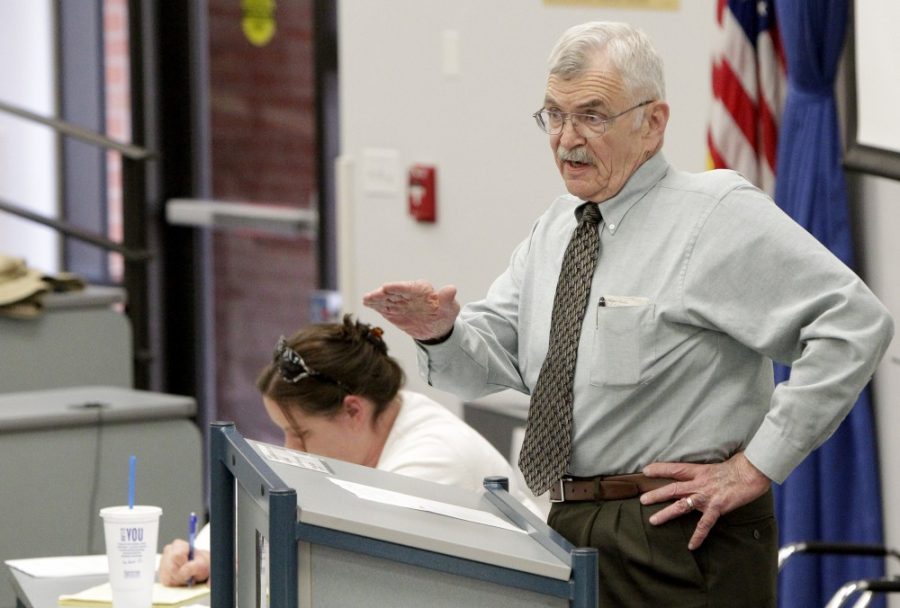For UA President Eugene Sander, discussing whether to raise tuition in the face of continued cuts from the state is like discussing an increase in taxes.
“You have people who say, ‘Fix the potholes in the road,’” Sander said. “But when you say, ‘Then we need to raise taxes’ they back off. You’ve got to be kidding.”
Sander’s address to the Faculty Senate on Monday came after one by James Allen, the president of the Associated Students of the University of Arizona, where Allen reaffirmed ASUA’s commitment to ensuring a $0 tuition increase for all students.
Specifically, Allen mentioned issues with raising tuition to bankroll increases in faculty salaries, which Sander has also proposed. While Allen said he was sympathetic to the plight of faculty members in need of a raise, he didn’t think it justified additional costs for students.
“We are looking at an 8 to 10 percent increase in the cost of living for faculty,” Allen said. “But we’re looking at a 100 percent (increase) of tuition for students over the last four years.”
But Sander, in his address to the Senate, said a lack of cost of living raises, among other things, could jeopardize the university’s ability to retain young, highly sought-after faculty members.
Sander said the UA has not done a good enough job “restocking the shelves” with young, productive faculty members to replace older ones.
“The thing that worries me the most is that some of our very most productive faculty are men and women that are a little younger than I am,” Sander said. “That still makes them fairly old.”
Wanda Howell, the chair of the faculty, questioned whether the UA is undervaluing its faculty.
“If you value something enough, you will pay for it,” Howell said. “And we don’t pay enough for our people.”
Sander retorted that, with the UA absorbing $180 million in cuts from the state over the last three years, it is unreasonable to expect across-the-board raises. Sander also questioned Allen’s assessment that students would not accept a tuition increase that would, in part, fund salary increases.
“The fact that students can say, ‘You can’t use tuition dollars to pay for salaries …’” Sander said, trailing off. “I’m sorry, students, but get over it.”
Allen responded that students have done their fair share in helping the UA offset cuts.
“I feel like we’re being extremely cautious, which is good, but I just cannot accept that as a legitimate reason for forcing yet another tuition increase on the backs of students,” Allen said. “I am 100 percent knowledgeable in that more money will always help the university. I just think there’s a legitimacy in my argument that, for once, it shouldn’t come from students.”
The issue of administrative bloat, an excess of administrative positions, was also addressed at the meeting. Sander rejected the notion that administrative bloat is primarily to blame for the UA’s financial straits, and said the Arizona Board of Regents’ “Mickey Mouse efficiencies” would not add up to financial solvency or academic quality.
“You can talk efficiencies … but the point is that this university is no better than the faculty that work here,” Sander said.
Ralph Renger, a Faculty Senate member and public health professor, said he did see bloat affecting his college.
“I resonate with the students on this tuition issue,” he said. “I’m from the College of Public Health and we’re starving for young talent. We haven’t done a good job restocking the shelves. But we are administratively fat and I would say we still have some blubber floating around.”









